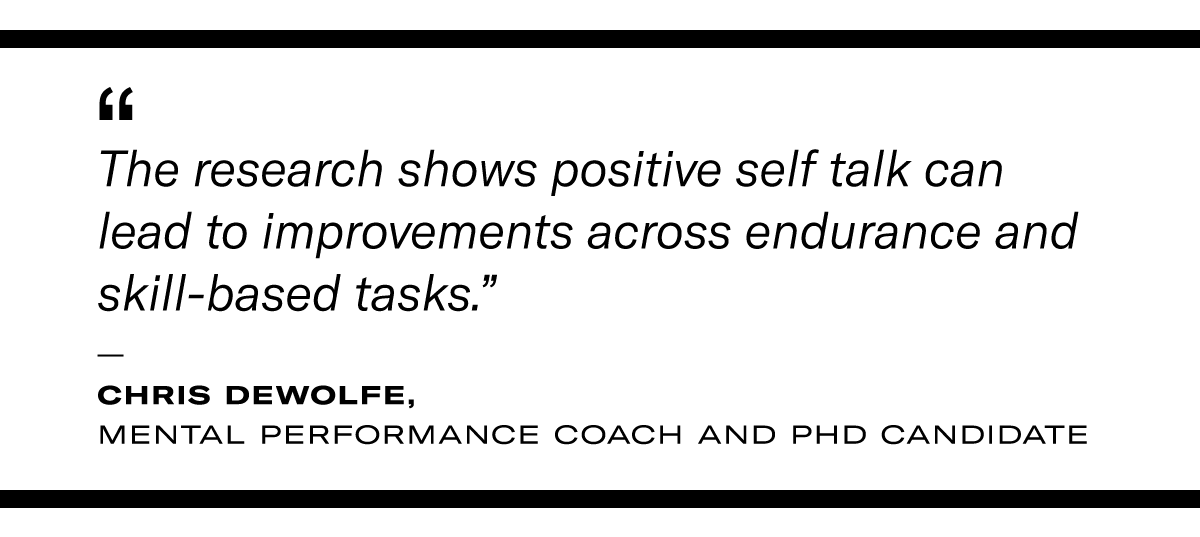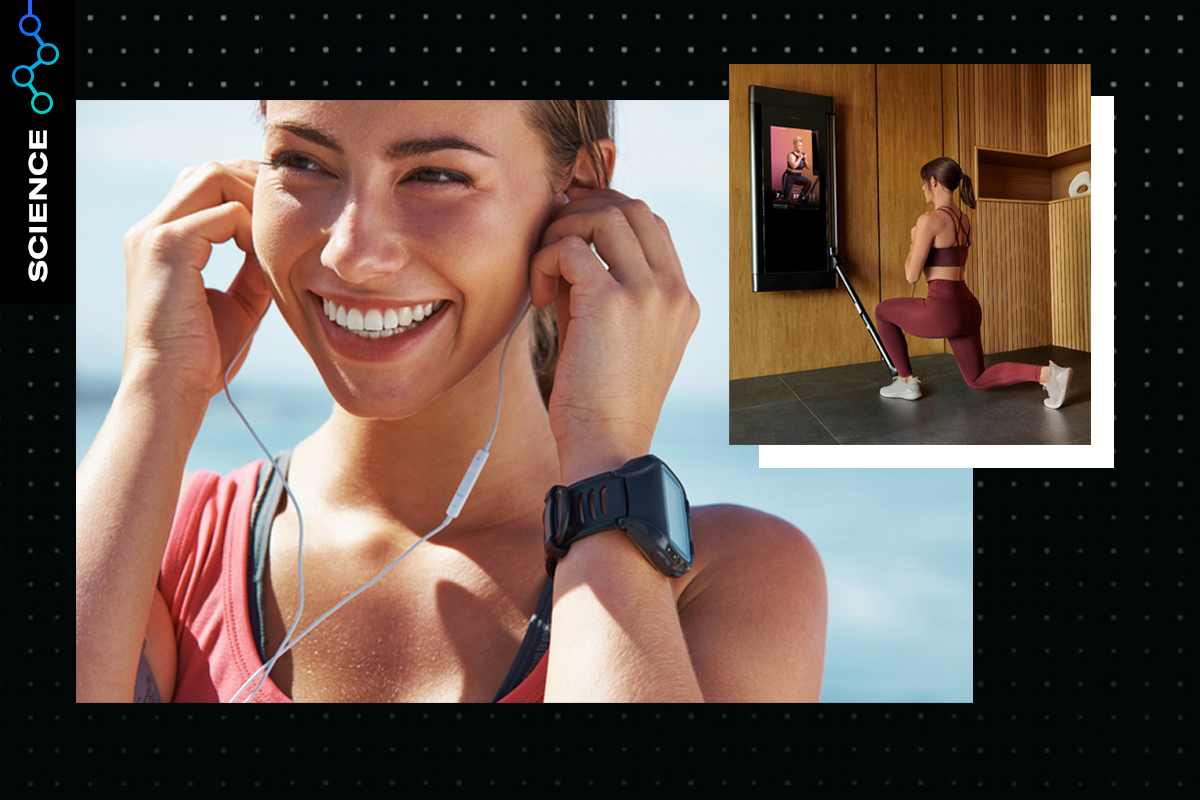Your inner monologue has a surprisingly big impact on your workout.

Just as great coaches use motivational phrases to push athletes to reach their potential, positive self-talk can help you feel stronger and perform better in your workouts.
Self-talk is a “core psychological skill” that affects exercise performance, explains Chris DeWolfe, a mental performance consultant and PhD candidate in clinical psychology at Dalhousie University. There are two main types of self-talk: automatic and deliberate. Automatic self-talk refers to thoughts that naturally pop up in your mind, while deliberate self-talk is composed of the specific words or cues you choose to tell yourself.
Opting for positive deliberate self-talk makes a difference. “The research shows it can lead to improvements across endurance tasks and skill-based tasks,” says DeWolfe. Although you can’t control negative automatic thoughts, there are ways to manage them, as described below.

Studies have demonstrated that in sports including running, cycling, tennis, and rugby, athletes who practice positive self-talk experience improved speed, longer time to exhaustion, and reduced anxiety.
The technique isn’t just for competitive athletes, though. You can also put it to use in your own workouts to feel stronger and hit your goals.
How to Use Self-Talk During Exercise
Use Second-Person Pronouns
Want a simple trick for more effective self-talk? Try using “you” instead of “I” statements. In this study on cycling time trials, cyclists who spoke to themselves in the second person (saying, for example, “You are going to finish strong”) pedaled faster and generated more power than those who used first-person self-talk (such as “I am going to finish strong”).
Interestingly, the group using second-person statements didn’t rate their perceived effort level any higher, meaning this type of self-talk helped them work harder without it feeling harder. The study’s authors hypothesize that this is due to the psychological concept of self-distancing. By saying “you” instead of “I,” you’re observing yourself from a zoomed out perspective and are better able to think objectively about your performance. It’s like encouraging a friend instead of yourself.

Like what you’re reading? Get more stories in the Tonal app.
Challenge Negative Thoughts
While you can control your deliberate self-talk, as DeWolfe explained, automatic thoughts still barge in, and they may be negative. Instead of trying to ignore these feelings or push them away, DeWolfe’s research suggests you’re better off acknowledging the negative thoughts and challenging them with positive ones.
His study compared groups of cyclists using positive, negative, and neutral self-talk with those who paired negative words with challenging positive statements. For example, the negative group told themselves, “My legs are tired,” while the latter group said, “My legs are tired but I can push through it.” DeWolfe’s results indicated the group that added a positive statement to a negative one performed significantly better than those who only used negative self-talk.
“Instead of just using positive words, it might be better to learn a strategy to navigate the negative ones that automatically come up,” says DeWolfe. If you’re plagued by negative thoughts in workouts, utilize this technique to challenge them. It can even apply to other scenarios outside of your workouts such as your job or parenting.

Focus on The Final Push
Along with the type of self-talk you use, the timing of when you put these strategies to use also affects how you feel during a workout. In DeWolfe’s study, the performance gap between the group using negative self-talk and the ones using positive or negative-challenging thoughts was most pronounced at the end of a 20-minute cycling block.
“The difference got bigger and bigger over time,” he says, “which suggests that self-talk is important when you get more fatigued.” If you find yourself starting a workout strong but fading toward the end, save your self-talk phrases for those last few reps when you really need the encouragement.
Talk Your Way Through Challenges
Positive self-talk provides a powerful assist in challenging circumstances. In one study, researchers found that a group of male and female cyclists performed better in extreme heat (around 95-degrees Fahrenheit) when they repeated positive statements to themselves (like “‘Keep pushing, you’re doing well’’) compared to those who did not. The participants who practiced positive self-talk were able to pedal longer in the heat without feeling like they had to give up or drop their cadence. Try using uplifting self-talk the next time you’re working out in less-than-ideal conditions to give yourself the mental strength to tackle the challenge.
Know Your Audience
You have to find the phrases that personally resonate with you most, and what works can vary widely from person to person. ”Self-talk is interpretive,” says DeWolfe. Some people might find the most success with second-person statements while others may get more benefits from challenging their negative thoughts.
Even negative self-talk can potentially improve performance in individuals who are motivated by a challenge. “If you’re running and say, ‘I’m going so slow,’ and you really believe you could be faster, that might motivate you,” says DeWolfe. To find out what works for you, try out a variety of statements in your workouts and pay attention to what brings out the best in you. Jot down your personal favorites and put them to use when you’re feeling challenged.


